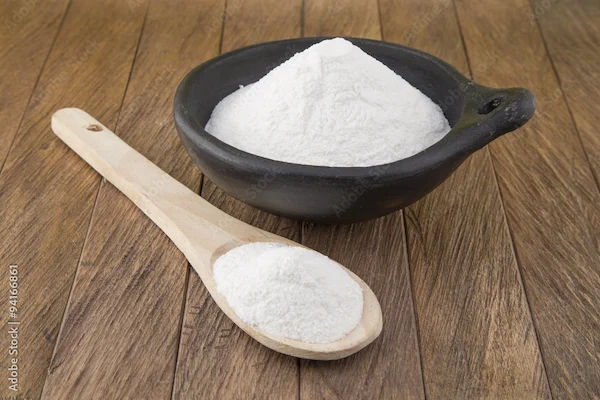How To Increase Sodium Levels In Elderly?
Learn safe and effective ways to increase sodium levels in elderly individuals through diet, lifestyle adjustments, and medical guidance to maintain healthy electrolyte balance.

Written by Dr.Sonia Bhatt
Last updated on 3rd Jul, 2025

Introduction
As we age, our bodies undergo various changes, and maintaining the right balance of essential minerals becomes crucial for overall health. One such mineral is sodium, which plays a vital role in regulating blood pressure, nerve function, and fluid balance. However, elderly individuals often experience low sodium levels (hyponatraemia), which can lead to serious health concerns if left untreated.
If you or an elderly loved one has been diagnosed with low sodium levels, don’t worry—there are safe and effective ways to address this issue. In this article, we’ll explore what causes low sodium levels in the elderly, common symptoms to watch out for and simple dietary and lifestyle changes to boost sodium levels.
Understanding Low Sodium Levels in the Elderly
Sodium is an electrolyte that helps maintain fluid balance, supports nerve and muscle function, and regulates blood pressure. Hyponatraemia occurs when sodium levels in the blood drop below normal (less than 135 mEq/L). This condition is particularly common in older adults due to age-related factors such as:
Medications (diuretics, antidepressants, or painkillers that affect sodium balance)
Chronic illnesses (kidney disease, heart failure, or liver problems)
Dehydration or overhydration (drinking too much water without enough electrolytes)
Hormonal imbalances (like low thyroid or adrenal gland issues)
Signs & Symptoms of Low Sodium
Mild hyponatraemia may not always show symptoms, but as levels drop further, the following signs may appear:
Fatigue or weakness
Headaches or confusion
Nausea or vomiting
Muscle cramps or spasms
Dizziness or difficulty balancing
Seizures (in severe cases)
If an elderly person experiences these symptoms, especially confusion or seizures, seek medical attention immediately.
Consult Top General Physician
How to Increase Sodium Levels Safely?
Ways to increase sodium levels safely are:
1. Adjust Your Diet
The most natural way to increase sodium is through food. However, moderation is key. Too much sodium can lead to high blood pressure.
Foods to include:
Broths & soups (chicken, vegetable, or bone broth)
Cheese & dairy products (cottage cheese, yogurt)
Pickles, olives, and salted nuts (in small portions)
Whole-grain bread & crackers (lightly salted)
Lean meats & fish (canned tuna, smoked salmon)
Foods to avoid in excess:
Processed snacks (chips, instant noodles)
Excessive sugary drinks (they dilute sodium levels)
2. Stay Hydrated, But Not Overhydrated
Drinking too much water can lower sodium levels further. Instead:
Sip fluids slowly throughout the day.
Include electrolyte-rich drinks (coconut water, oral rehydration solutions).
Avoid drinking large amounts of plain water at once.
3. Review Medications with a Doctor
Some medications (like diuretics or blood pressure pills) may contribute to low sodium. A doctor can adjust dosages or suggest alternatives.
4. Monitor Underlying Health Conditions
If conditions like kidney disease, diabetes, or heart problems are affecting sodium levels, proper management is essential. Regular check-ups help track progress.
5. Consider Sodium Supplements (if prescribed)
In severe cases, a doctor may recommend sodium tablets or IV fluids. Never self-medicate with salt tablets without medical advice.
When to See a Doctor?
While mild hyponatraemia can often be corrected with diet, severe cases require medical intervention. Seek help if:
Persistent nausea, vomiting, or headaches
Sudden confusion or memory lapses
Muscle weakness or seizures
Conclusion
Maintaining healthy sodium levels in the elderly is essential for proper nerve function, hydration, and overall well-being. A balanced approach that includes sodium-rich foods, adequate fluid intake, and careful monitoring under medical supervision can help correct low sodium levels safely. Since underlying health conditions and medications often contribute to sodium imbalances, it’s important to consult a healthcare professional before making any changes. With the right care and guidance, restoring and maintaining optimal sodium levels can significantly improve quality of life in older adults.
Consult Top General Physician
Consult Top General Physician

Dr. D Bhanu Prakash
General Practitioner
10 Years • MBBS, AFIH, Advanced certificate in critical care medicine, Fellowship in critical care medicine
Hyderabad
Apollo 24|7 Clinic, Hyderabad

Dr. Vasanthasree Nair
General Practitioner
15 Years • MBBS
Angamaly
Apollo 24|7 Clinic - Kerala, Angamaly
(425+ Patients)

Dr. Anshul Maheshwari
General Practitioner
5 Years • MBBS
Lucknow
Apollo 24|7 Clinic - Uttar Pradesh, Lucknow

Dr. J T Hema Pratima
General Practitioner
9 Years • MBBS
Chennai
Apollo 24|7 Clinic - Tamilnadu, Chennai
(250+ Patients)

Dr. Siri Nallapu
General Practitioner
5 Years • MBBS
Hyderabad
Apollo 24|7 Clinic, Hyderabad
Consult Top General Physician

Dr. D Bhanu Prakash
General Practitioner
10 Years • MBBS, AFIH, Advanced certificate in critical care medicine, Fellowship in critical care medicine
Hyderabad
Apollo 24|7 Clinic, Hyderabad

Dr. Vasanthasree Nair
General Practitioner
15 Years • MBBS
Angamaly
Apollo 24|7 Clinic - Kerala, Angamaly
(425+ Patients)

Dr. Anshul Maheshwari
General Practitioner
5 Years • MBBS
Lucknow
Apollo 24|7 Clinic - Uttar Pradesh, Lucknow

Dr. J T Hema Pratima
General Practitioner
9 Years • MBBS
Chennai
Apollo 24|7 Clinic - Tamilnadu, Chennai
(250+ Patients)

Dr. Siri Nallapu
General Practitioner
5 Years • MBBS
Hyderabad
Apollo 24|7 Clinic, Hyderabad